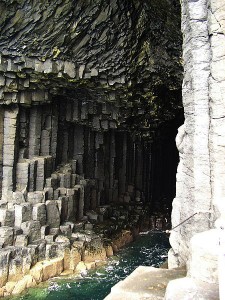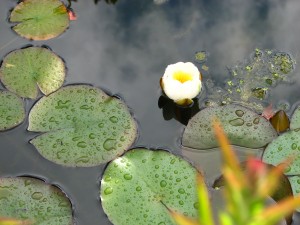One of my earliest memories is of listening to music. On Sunday evenings, to lull me off to sleep, my parents used to leave the radio playing just outside my bedroom door, tuned in to a programme called “Your Hundred Best Tunes”. It featured popular classics, like Morning from The Peer Gynt Suite, and the largo from the New World Symphony, forever to be known in the UK as “the Hovis music” after an inspired television commercial for bread.
That radio programme was my introduction to classical music. Long before I knew the names of the composers, I recognized the pieces by the pictures they painted in my head: the surging surf of Fingal’s Cave, Night on a Bare Mountain with its witches’ sabbat, and the gilded curlicues of The Arrival of the Queen of Sheba. Through music I began to explore the landscapes of my imagination, as the pictures prompted questions of who and where and why, and from those seeds, stories grow.
When I’m writing, I almost always have music playing. There are sound practical reasons for this: it blocks out ambient noise that would otherwise distract me, such as the school playground across the road, and creates an aural bubble in which I can focus utterly on what I’m working on, but there are other reasons too; reasons which are equally practical, if a little more ephemeral.
On those days when the creative fires prove difficult to ignite, music provides an extra spark. Whether it’s a mood or a mountain range I’m trying to invoke, the right piece of music can serve as a prompt – and sometimes takes me somewhere I wasn’t expecting. It doesn’t always have to be a classical piece, either: sweeping movie soundtracks, rock, country, any genre you like. If you put my mp3 player on random, it’s entirely possible to segue from AC/DC to Crouching Tiger, Hidden Dragon via Thomas Tallis and Nina Simone, and I’ve found a use for all of them at different times as my stories unfold.
Certain pieces of music also have the power to evoke profound emotional responses, which I can use when I’m tackling a scene that goes beyond my own experience. It’s all very well saying “But you’re a writer, surely you just use your imagination?” but if I want the reader to feel what my character’s feeling, the words have to come not from dispassionate choices made in my head, but from deep inside.
I’ve never knelt in the rain with my first love dying in front of me, but start playing the adagio from the Concierto de Aranjuez and I’m there, in that moment, and yes, I’m sobbing my eyes out.
Music has power. Music, to me, is very close to magic. Standing in my garden one summer’s morning, with the sun barely up and the dew still sparkling on the plants, I thought for a second that I could hear the flowers grow. In that moment of whimsy, I heard the songs of the earth, and learned the name of the music Gair heard in the dark as he waited for his sentence to be handed down. With that, another story took flight.
And if that’s not magic, I’m not sure what is.
This piece was originally written for my German publisher to promote me as a new writer. I stumbled over it when doing some housekeeping on my PC, and thought it deserved another airing.








